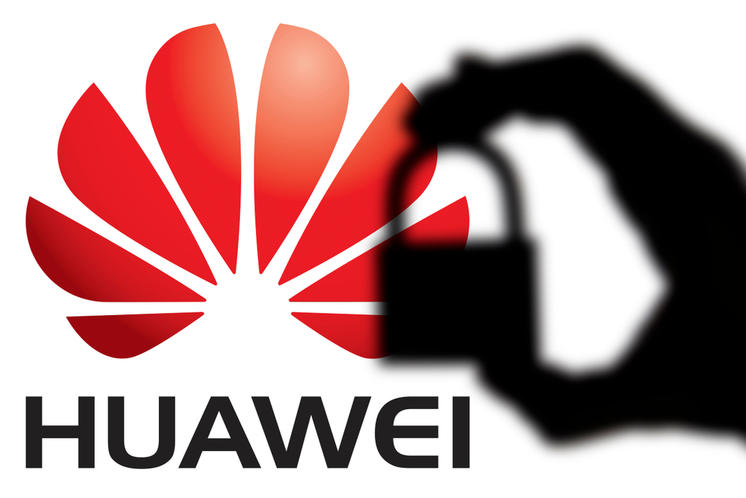Weekly Thoughts by Mirabaud Securities - 24 May 2019



Global equity markets tumbled this week as fears grow that the China-U.S. trade conflict is fast turning into a technology cold war and as Wall Street's denial is finally shifting to acceptance that a lengthy, all-out trade war is now inevitable, and the only way out and for someone to concede is for markets to plunge.
Once again, the largest sectoral decrease this week was due to sectors “China sensitive”: Materials, technology, and consumption. Healthcare and Utilities lead the week. The European market also took a hit, the FTSE MIB lagged behind the other indices (the political turmoil weighed heavily on the index). Finally, in Asia, we saw a new consolidation in China over the week (Shanghai composite loosing 3.5%). In Japan, the Nikkei managed to keep ahead of the turmoil (+0.4% in Dollar).

Instead of hanging on for what would be a fourth vote on the withdrawal agreement she negotiated with the European Union, Theresa May might instead step down, or set a date for her resignation. The Sterling (-0.68% on the week against the dollar) was even more hit when commons Leader Andrea Leadsom quit the cabinet on Wednesday, saying she no longer believes the government's approach will deliver Brexit.
The Norwegian Krona and the Swiss Franc were the biggest gainers (vs. Dollar). The British Pound was the biggest loser of the week, ahead of the New Zealand Dollar. In emerging markets (still vs. dollars), the Brazilian Real and the Mexican Peso were the biggest gainers. We saw some significant decrease on the Colombian Peso, the Turkish Lira and Taiwan Dollar.

The Fed Funds futures (via the CME FedWatch Tool) continue to show much higher odds of a rate cut than a hike for 2019. It now shows a 63.9% chance of one or more rate cuts by December. In this case, utilities would be the perfect investment.
First, utility companies will draw the attention of many conservative, income-focused investors; the average dividend yield of utility companies, which was around 4.8%, offered an attractive alternative. Second, interest rates impact utility companies borrowing costs. Utility (typically high debt levels) firms have major capital expenditures and high debt-to-market capital levels. Finally, in a world of higher rates some utility companies can offset their increased borrowing costs by passing them on to customers, but being able to raise their rates enough to cover the extra cost of financing is not a given. If companies are unable to pass on the extra costs to their customers, these costs are at least partially borne by their equity investors and bondholders, thus making the companies less attractive to new investors. Lower rates and Utilities: A perfect fit.

The Netherlands was the first triple-A rated sovereign borrower to place a Green bond (21,2 billion euros) this week. The Dutch debt agency said it had given preference to investors that could prove their ecological credentials. Thirty-two investors had registered as green before the 20-year bond’s auction, in which the Netherlands raised almost 6 billion euros. Investors who could prove their green credentials were given an additional allocation of up to 10%. The initial price guidance was put in a range of 18 to 21 basis points (bps) over a benchmark German bond. The spread was finally set at 18 bps over and the bond yields 0.557%. Green bonds comprise a small fraction of the overall bond market, but interest has soared as banks, sovereigns and companies look to tap into increasing investor appetite.
The Dutch debt agency said it would reopen its 20-year green bond in the coming years to raise a total amount of around 10 billion euros.
On Wednesday, Morgan Stanley held an investor call for clients, led by analyst Adam Jonas, supposedly due to feedback after the company's note yesterday, which saw the investment bank lower its "bear case" target to on the company to just $10 per share. This came, ironically enough, just weeks after the company helped Tesla perform a $2.4 billion financing. "Tesla's is not seen as a growth story, it's seen as a distressed credit and restructuring story," Jonas said later in the call, suggesting that the next step for Tesla is an out of court debt restructuring and/or bankruptcy (preferably a Chapter 11). The company's 5-year CDS is at 674 vs. Ford at 200; Tesla has among the widest ranges of outcomes and uncertainty of any major auto firm. But is Tesla (only) an auto firm?

Which stocks are at risk in Europe? / War and stock exchange / European elections: Why is it important? / Chinese Luxury / Fed Minutes / Earning recession ahead?
Please feel free to ask for more information if interested.
“Hard and Soft Brexit” (Opportunities & Threats) is on the cliff this week after the Brexit was postponed to 31 October. There is still a risk, however, that the House of Commons will approve the withdrawal agreement before May 22nd.
“European elections” (Threats) since the elections are underway this weekend. Depending on the results, it may become a Strengths or a Weakness
SWOT stands for Strengths, Weaknesses, Opportunities and Threats, the French equivalent of FFOM analysis (Forces, Faiblesses, Opportunités et Menaces). While SWOT analysis can be used to develop a company's marketing strategy and evaluate the success of a project (by studying data sets such as company's strengths and weaknesses, but also competition or potential markets), I decided several years ago to adapt it as a way to analyse financial markets. SWOT analysis allows a general development of markets by crossing two types of data: internal and external. The internal information taken into account will be the strengths and weaknesses of the market. The external data will focus on threats and opportunities in the vicinity. Finally, and most interestingly, there is a table that will evolve according to current events, which will allow it to reflect the underlying trend in the financial markets on a weekly basis.
Diese Veröffentlichung wurde von Mirabaud erstellt. Sie ist nicht zur Verteilung, Verbreitung, Veröffentlichung oder Nutzung in einer Gerichtsbarkeit bestimmt, in der eine solche Verteilung, Verbreitung, Veröffentlichung oder Nutzung untersagt wäre. Sie ist nicht für Personen oder Unternehmen bestimmt, an die die Übersendung dieser Veröffentlichung rechtswidrig wäre.
Mehr lesen
Author
Weiter zu
